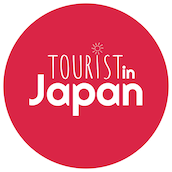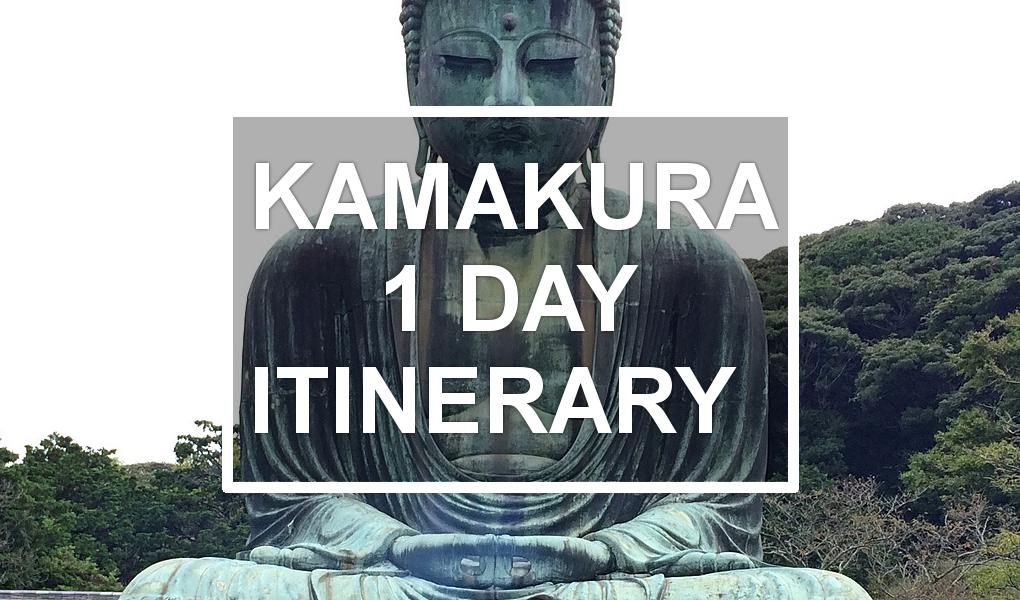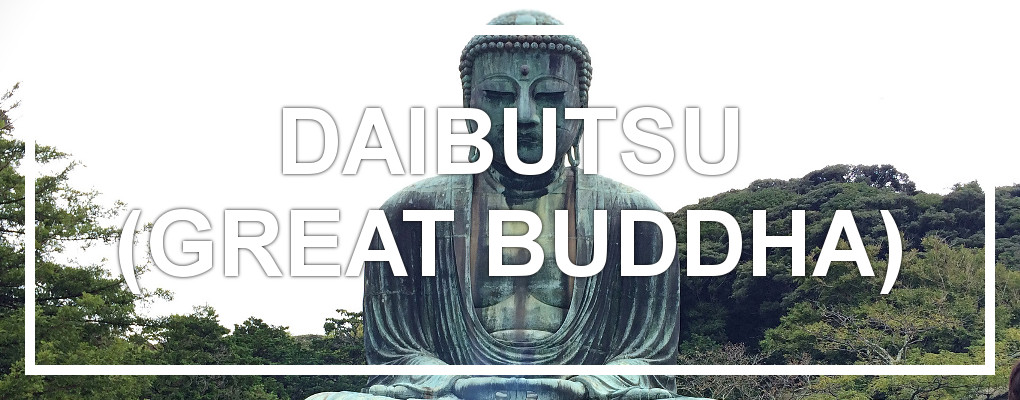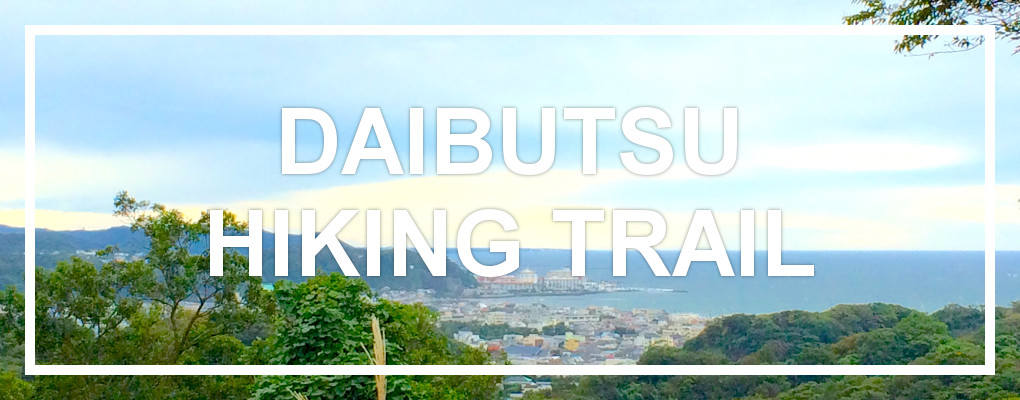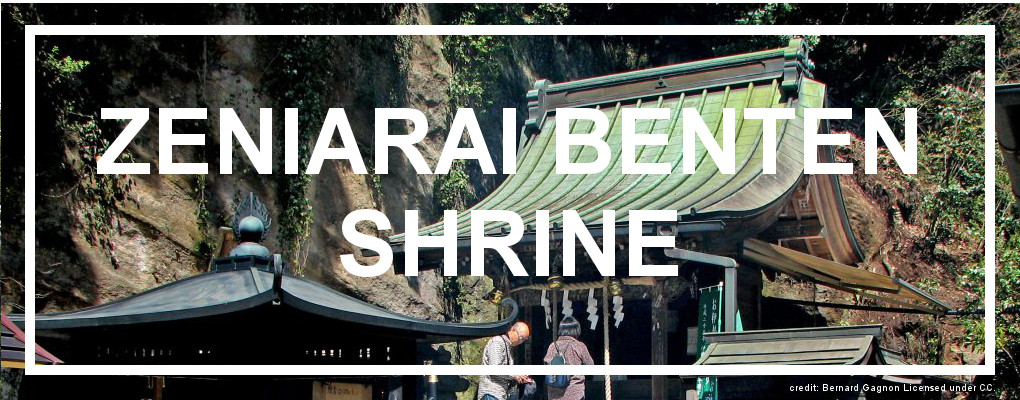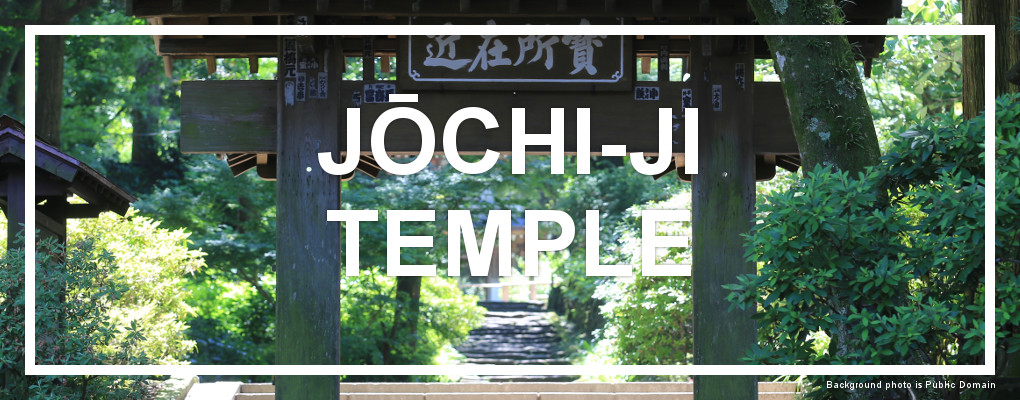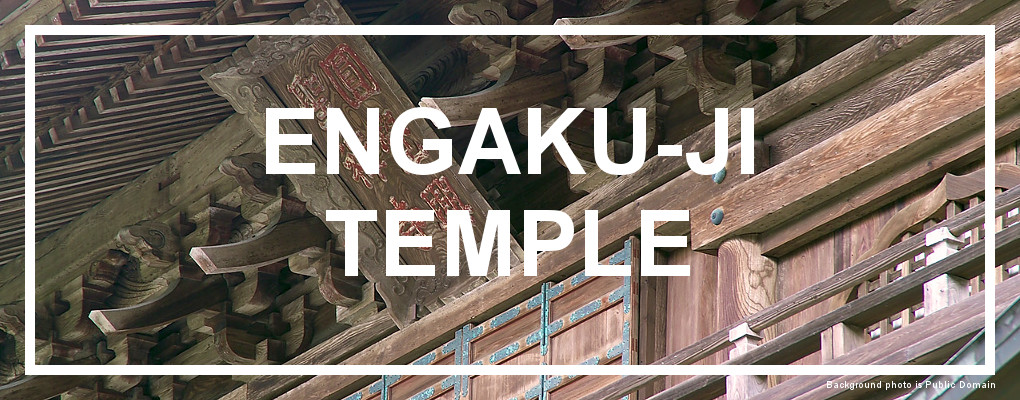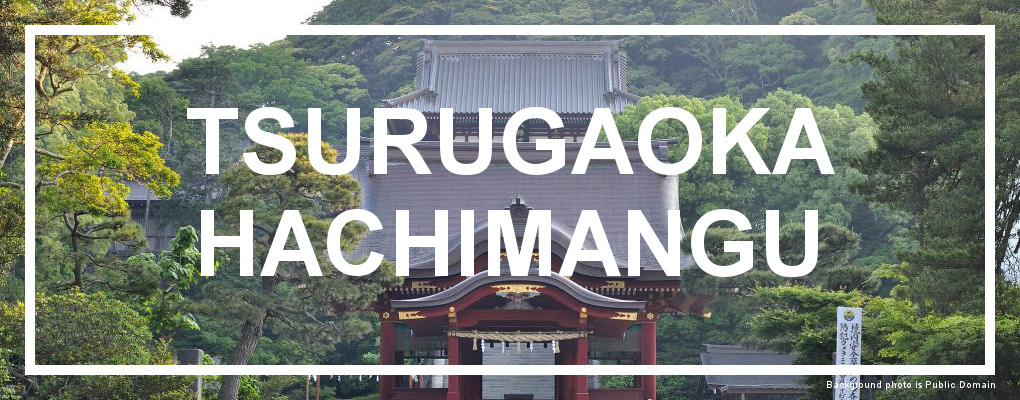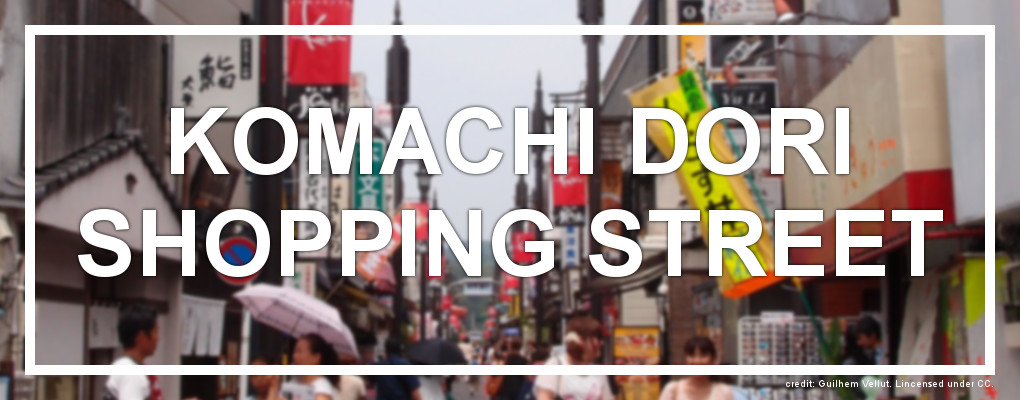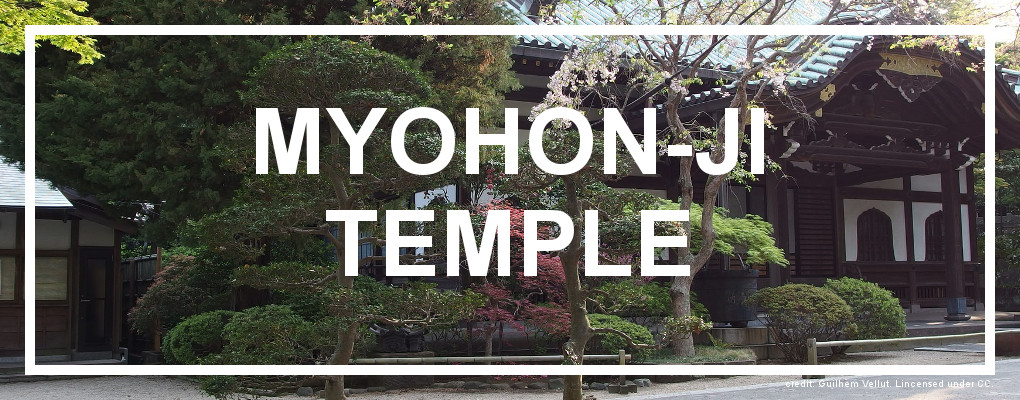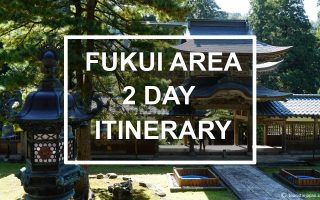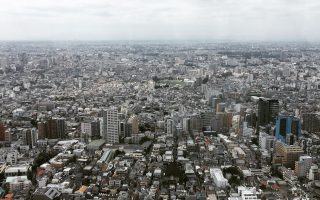Kamakura is a historic city located a 1 hour train ride south of Tokyo. It is a popular side trip from Tokyo due to its relaxed ambiance and beautiful buddhist temples and shinto shrines. Kamakura was the power center of the Kamakura Shogunate from around 1200 to 1300. When walking around the city it’s clear that this was once a place of great importance, and it’s not without reason that the area is sometimes compared to Kyoto. The scale and shear size of the shrines and temples clearly show what important role this area once had.
Hotels in Kamakura Kamakura Guided Tour Kamakura Guided Hiking Tour
Kamakura is a perfect day trip from Tokyo. This 1-day itinerary is designed to take you past some of the most important historic, scenic and cultural spots in the city. If you need a hotel in Kamakura, then you can find some recommendations at the bottom of the article.
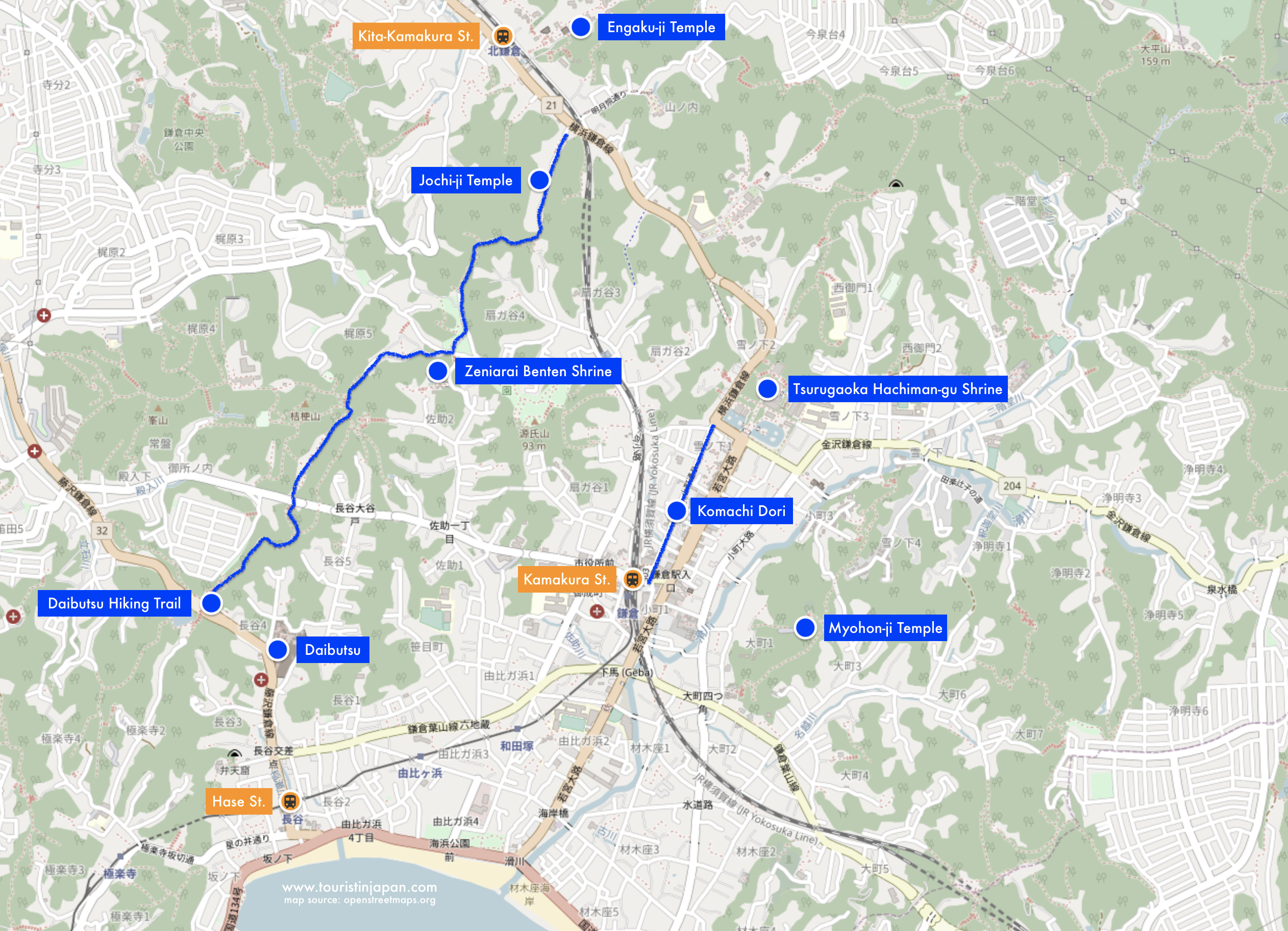
1-day itinerary Kamakura
| 09:00 | Daibutsu |
| 10:00 | Daibutsu Hiking Trail |
| 11:00 | Zeniarai Benten Shrine |
| 11:45 | Jochi-ji Temple |
| 12:30 | Lunch in Kita-Kamakura |
| 13:30 | Engaku-ji Temple |
| 14:30 | Tsurugaoka Hachimangū Shrine |
| 15:30 | Komachi Dori shopping street and snacks |
| 17:00 | Myohon-ji Temple (if time permits) |
Itinerary details
Daibutsu (Great Buddha)is a 13m high buddha bronze statue, which belongs to the Buddhist Kōtoku-in temple in Kamakura. The statue dates back to 1252 and is a designated national treasure of Japan. The statue sits out in the open air, with the beautiful forrest as a backdrop. It’s possible to go inside the statue for a small fee. Nearest station: Hase Station. 10 minute walk from Hase station. |
Daibutsu Hiking Trailis an approximately 6km (1h) long hiking trail which goes through the forrest covered hills of Kamakura, from the Great Buddha to Jochi-ji temple. Underway one can make a stop at Zeniarai Benten Shrine. Appropriate footwear is recommended. Access: starting point near the Great Buddha statue. Follow road 32 a few hundred meters. Then ascend the stairs just before the tunnel. |
Zeniarai Shrineis hidden in the hills, on the edge of Kamakura. It is one of the most unique shrines of Kanto. Zeniarai Benten Shrine is completely surrounded by steep rock walls, and is entirely invisible from the outside. The shrine can only be accessed through a tunnel penetrating the wall, or via a narrow footpath on the backside. Inside this small “oasis” is a dark cave, in which a spring emerges from the rock. Legend has it, that money washed in the waters of this spring will double. Access: located along the Daibutsu hiking trail. Ideally visited while on the path between the Great Buddha and Jochi-ji temple (Kita-Kamakura). |
Jochi-ji Templeis the 4th of the 5 most important Zen shrines in Kamakura. It is the second-smallest of the 5 temples. However it wasn’t always as small as it is today. The temple fell in decay over time, but at the height of the its life up to 500 people lived here. The entire temple was destroyed in the great earthquake of 1923. What appears today is rebuilt in modern times. This temple is less frequently visited by tourists, and therefore feels quiet. If you follow the itinerary, this should be about lunch time. You can find some good restaurants Kita-Kamakura. Nearest station: Kita-Kamakura Station. It’s a 7 minute walk from the station to the temple. The temple is located at the end of the Daibutsu Hiking trail, and is ideally visited by hiking from the Great Buddha. |
Engaku-ji Templeis the second most important temple amongst the 5 Zen temples of Kamakura. Engaku-ji was founded in 1282 to honor those who fell in the fight to keep out a Mongolian invasion in the area a few years before. The current form of the temple dates back to the 18th century. Engaku-ji is known for its outstanding fall leaves, and its two national treasures: the temple bell and the Shariden building in which it’s said that one of Buddhas teeth is kept as a relic. Nearest station: Kita-Kamakura Station. It’s a 5 minute walk from the station to the temple. Exit on the north-eastern side of the tracks for easy access. The temple is located at the end of the Daibutsu Hiking trail, and is ideally visited by hiking from the Great Buddha. |
Tsurugaoka Hachimangū Shrineis a huge, 1000 year old shrine located in the middle of Kamakura City. In fact, it is considered the most important shrine in the entire city. The shrine sits up on a hill side, overlooking the city, and is well known for it’s 1.8km long approach and it’s 1000 year old Ginkgo tree, which sadly fell in a storm in 2010. Nearest station: Kamakura Station is the nearest station. It’s a 15 minute walk from the station. If you follow the itinerary, then take the train from Kita-Kamakura to Kamakura Station. |
Komachi Doriis a modern shopping street located right in the middle of the otherwise historic city of Kamakura. It’s extremely popular, attracting millions of visitors every year. Komachi Dori is the perfect place to try out the local food specialties. You should not miss the dove-shaped cookies (Hatosabure) and Shirasu (whitebait) which are two of the most well known specialties from the region. You can easily spend an hour or more here, exploring all the delicious food stands, restaurants and shops. Nearest station: Kamakura Station is the nearest station. Komachi Dori starts right in front of the stations eastern exit. If you follow the itinerary you will pass through the street on your way to- or from Tsurugaoka Hachimangū Shrine. |
Myohon-ji Templeis a buddhist temple belonging to the Nichiren sect. The temple, which was founded in 1260, is nestled in the hills on the eastern side of Kamakura, and can be accessed by foot. From the temple there’s access to the Gionyama hiking trail. Nearest station: Kamakura Station is the nearest station. It’s a 10 minute walk to the temple. |
Planning your visit
Accommodation
Hotel Recommendation for Kamakura:
WeBase Hostel Kamakura (budget)
Located a near Yuigahama beach and station, WeBase Hostel Kamakura is a good option for the budget minded traveler. The hostel has private and dormitory rooms. There’s even a yoga studio where you can take part in daily yoga classes, meditation and beach yoga sessions.
Kiyaza Kamakura Resort (mid-class)
This hotel is suitable for both mid-class and budget travelers. It is located near the sea, in proximity of the beginning of the 1.8km approach to the famous Hachimangu Shrine. Both private and dormitory rooms are available.
Kamakura Park Hotel (high-end)
Kamakura Park Hotel is one of the nicer hotels in Kamakura. This 4* hotel is located by the beach, and a few hundred meters from Gokurakuji station. It features Italian furnishing, sea views and has a spa available. It is located in walking distance from the Great Buddha of Kamakura.
>> More Kamakura Hotels here
Wi-Fi
Having an internet connection can help you a great deal when navigating the streets of a new city. Booking Pocket Wi-Fi or getting a Japanese SIM-card for your phone can be a great way to help yourself out of a tricky situation.
Tours
Not so fond of self-guided tours? or maybe you just want more in-depth knowledge about the places you visit? Then here are some tours, which might be a good choice for you:
- Kamakura history and nature tour in english
- 1 day private tour around Kamakura
- Ancient Kamakura and the naval history of Yokosuka
- Tea in a Zen garden
Getting there
From Tokyo: take the Yokosuka Line (JO) from Tokyo Station, Shimbashi Station or Shinagawa Station. Get off at Kamakura Station. The ride is just under 1 hour, and is covered by the Japan Rail Pass.
